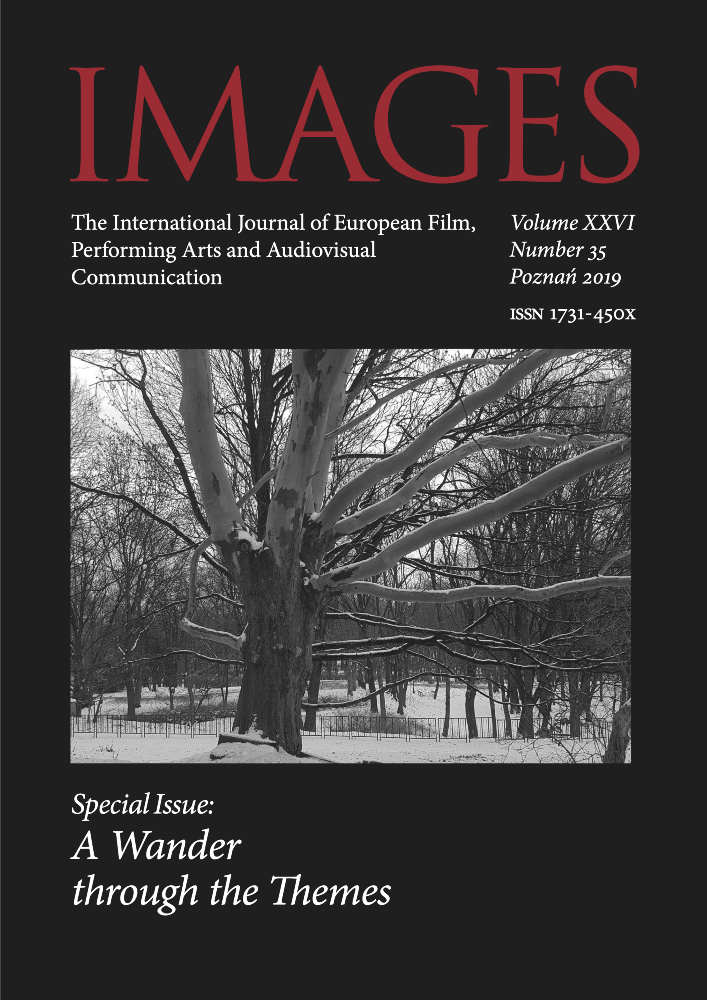Abstrakt
This article discusses two film adaptations of Romeo and Juliet, i.e. one directed by Franco Zeffirelli and the other by Baz Luhrmann. It covers the following aspects: the structure of both the drama and its two film adaptations, the characters’ creation, the choice of setting and screen time, and the function of tragedy. Shakespeare’s language is characterised by unparalleled wit and powers of observation, and the final form of his plays is a clear indication of his ambivalent attitude towards tradition and the rigid structure of the drama. By breaking with convention, favouring an episodic structure, and blending tragedy with comedy, Shakespeare always takes risks, in a similar vain to the two directors who decided to make film adaptations based on his plays. Each technical device the adaptors selected could have turned out to be a wonderful novelty or a total disaster. The strength of both Zeffirelli’s and Luhrman’s adaptations is their emphasis on love and youth, which thanks to their directorial skill is perfectly in tune with the spirit of their respective times.
Bibliografia
Auerbach E., Mimesis, The Representation of Reality in Western Literature, Princeton 2003
Bradley A.C., Shakespearean Tragedy, London 1992
Buhler S.M., Shakespeare in the Cinema, Ocular Proof, New York 2002
Coleridge S.T., Coleridge’s Lectures on Shakespeare and Other Poets and Dramatists. The Seventh Lecture, ed. Ernest Rys, London 1914
Hankins J.E., Introduction, [in:] W. Shakespeare, Romeo and Juliet, New York, London 1970
Helman A., Przemoc i nostalgia w filmie gangsterskim [Violence and nostalgia in the gangster film], in: Kino gatunków wczoraj i dziś [Genre cinema now and in the past], ed. K. Loska, Kraków 1998
Jackson R., Shakespeare and the English Speaking Cinema, Oxford 2014
Łopatka P., Trzy sposoby na Szekspira [Three solutions to Shakespeare], “Kwartalnik Filmowy” [Film Quarterly] 1999, no. 26–27
Shakespeare W., Macbeth, Cambridge 1925
Shakespeare W., Romeo and Juliet, London 1994
Spurgeon C.F.E., Shakespeare’s Imagery and What it Tells Us, Cambridge 2005
Stachówna G., O melodramacie filmowym [On film melodrama], [in:] Kino gatunków wczoraj i dziś [Genre cinema now and in the past], ed. K. Loska, Kraków 1998
Tatspaugh P., The Tragedies of Love on Film, [in:] The Cambridge Companion to Shakespeare on Film, ed. R. Jackson, Cambridge 2000
Zakens P., Szekspirowanie po ekranie [Shakespeareanscreen], [in:] Szkice z poetyki filmu [Essays on film poetics], ed. M. Hendrykowski, Poznań 1995
Zbierski H., Droga do Werony. Studium historycznoliterackie.
„Romeo i Julia” Szekspira [En route to Verona: historical and literaty study of Shakespeare’s Romeo and Juliet], Poznań 1966
Żurowski A., Czytając Szekspira [Reading Shakespeare], Łódź 1996
Licencja

Utwór dostępny jest na licencji Creative Commons Uznanie autorstwa – Użycie niekomercyjne – Bez utworów zależnych 4.0 Międzynarodowe.
